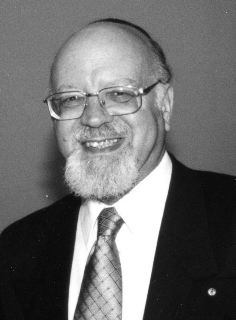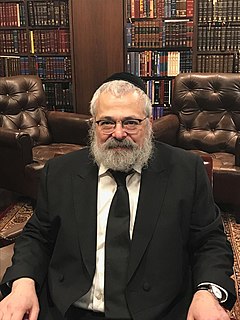Related Research Articles
The Austral Wheel Race is the oldest track bicycle race in the world still existing, stretching back to 1887. It is owned and run by Cycling Victoria. The Austral race is Australia’s greatest track cycling event. It is held in Melbourne, riders assigned handicaps according to ability over a series of heats. The finals are run over 2000m.
Bereavement in Judaism is a combination of minhag and mitzvah derived from the Torah and Judaism's classical rabbinic texts. The details of observance and practice vary according to each Jewish community.
The history of Jews in Australia traces the history of Australian Jews from the British settlement of Australia commencing in 1788. Though Europeans had visited Australia before 1788, there is no evidence of any Jewish sailors among the crew. The first Jews known to have come to Australia came as convicts transported to Botany Bay in 1788 aboard the First Fleet that established the first European settlement on the continent, on the site of present-day Sydney.

The Yeshiva College, also known as the Harry O. Triguboff Centre, is a Hasidic Jewish synagogue, learning centre, and library of the Chabad-Lubavitch nusach, located at 36 Flood Street, in the Sydney suburb of Bondi, New South Wales, Australia. The Centre runs various adult and child-based educational programs.
The North East railway line is a railway line in Victoria, Australia. The line runs from Albury railway station in the border settlement of Albury–Wodonga to Southern Cross railway station on the western edge of the Melbourne central business district, serving the cities of Wangaratta and Seymour, and smaller towns in northeastern Victoria. The line, owned by VicTrack, but leased to, and maintained by, the Australian Rail Track Corporation, and forms part of the Sydney–Melbourne rail corridor.

The Jewish Museum of Australia, not to be confused with the Sydney Jewish Museum, aims to "explore and share the Jewish experience in Australia". It is located in St Kilda, a suburb of Melbourne.

Rabbi Dr Raymond Apple is an Emeritus Senior Rabbi. He was the Senior Rabbi of the Great Synagogue of Sydney between 1972 and 2005. In this role, he was one of Australia's highest profile rabbis and the leading spokesman for Judaism in Australia.

Judaism is a minority religion in Australia. 91,022 Australians identified as Jewish in the 2016 census, which accounts for about 0.4% of the population. This is a 6% drop in numbers from the 2011 census, although the drop could have been because of the poor running of the census leaving many Jews uncomfortable with revealing their religion.
Australian Jews, or Jewish Australians, are Jews who are Australian citizens or permanent residents of Australia. There were 91,022 Australians who identified as Jewish in the 2016 census, which is a 6% decrease on 97,355 Jewish Australians in the 2011 census. The actual number is almost certainly higher, because an answer to the question on the census was optional and because Holocaust survivours, Haredi Jews or many non-practicing Jews are believed to prefer not to disclose religion in the census. By comparison, the Israeli newspaper Haaretz estimated a Jewish-Australian population of 120,000-150,000, while other estimates based on the death rate in the community estimate the size of the community as 250,000. Based on the census data, Jewish citizens make up about 0.4% of the Australian population. The Jewish community of Australia is composed mostly of Ashkenazi Jews, though there are Jews in Australia from many other traditions and levels of religious observance and participation in the Jewish community.
The Australian Jewish Genealogical Society (AJGS) is an Australian non-profit organisation established to encourage and assist those with Jewish ancestry to research their family histories. It is dedicated to the collection, preservation and dissemination of genealogical information of particular relevance and interest to members of the Australian Jewish community.

Rabbi Mordechai Zev Gutnick is a prominent Orthodox Jewish rabbi in Australia. Gutnick has served as a member of rabbinical courts in Melbourne and Sydney and various Australian rabbinical associations. He is associated with the Chabad-Lubavitch Hasidic movement; he is the eldest son of the late Rabbi Chaim Gutnick.

The Jewish Community Council of Victoria Inc (JCCV) is the peak representative body for Victorian Jewry, representing about 55 Jewish community organisations and over 52,000 Victorian Jews. The JCCV's mission is to represent the Victorian Jewish community, the largest Jewish community in Australia, on all matters that affect its status, welfare and interests. The JCCV was established in 1938 as the Victorian Jewish Advisory Board. It has been known as the Jewish Community Council of Victoria since 1989 and became an incorporated entity in 2000.
Moshe D. Gutnick is an Austrailan Orthodox rabbi, and a member of the ultra Orthodox Chabad Hasidic movement. Rabbi Gutnick is a senior member of the Beth Din in Sydney, Australia. Gutnick is currently President of the Rabbinical Council of Australia and New Zealand. Gutnick is the head of the NSW Kashrut Authority, the most widely known kosher authority in New South Wales. He formerly served as the rabbi of the Bondi Mizrachi Synagogue in Sydney.
The Zionist Federation of Australia (ZFA) is an umbrella organisation in Australia of the Zionist movement. It was established in Melbourne, Victoria in 1927 by prominent personalities, including Sir John Monash and Rabbi Israel Brodie, with Monash becoming its first president. On 11 November 2018, the biennial conference of ZFA elected Jeremy Leibler as its president, succeeding Danny Lamm who did not stand after serving for four years.

Yehoram Ulman is a rabbi in Sydney, Australia. He was born in Leningrad, USSR in 1964. He holds a number of senior positions in the Orthodox Jewish community.
Hilary L. Rubinstein is an Australian historian and author. She researches and writes on British naval history and modern Jewish history.
The Australian Association for Jewish Studies (AAJS) is a scholarly organization in Australia that promotes academic Jewish Studies. AAJS was founded in 1987 and held its first annual conference that year in Melbourne. AAJS is Australia's national association for tertiary academics, Jewish educators, researchers, curators, students and others devoted to the study of any aspect of Jewish life, thought and culture.
References
- ↑ Australian Jewish Historical Society Journal, Volume I, Part 1. (1939)
- ↑ "Archives, Records, and Libraries of the Australian Jewish Historical Society". Archived from the original on 14 May 2008. Retrieved 6 May 2008.
- ↑ Lamm Jewish Library of Australia
- ↑ Community gets fresh chance to purchase Gurewicz Archive (29 May 2008) Archived 30 May 2008 at the Wayback Machine
- ↑ AJN: Jewish Museum buys Gurewicz Archive